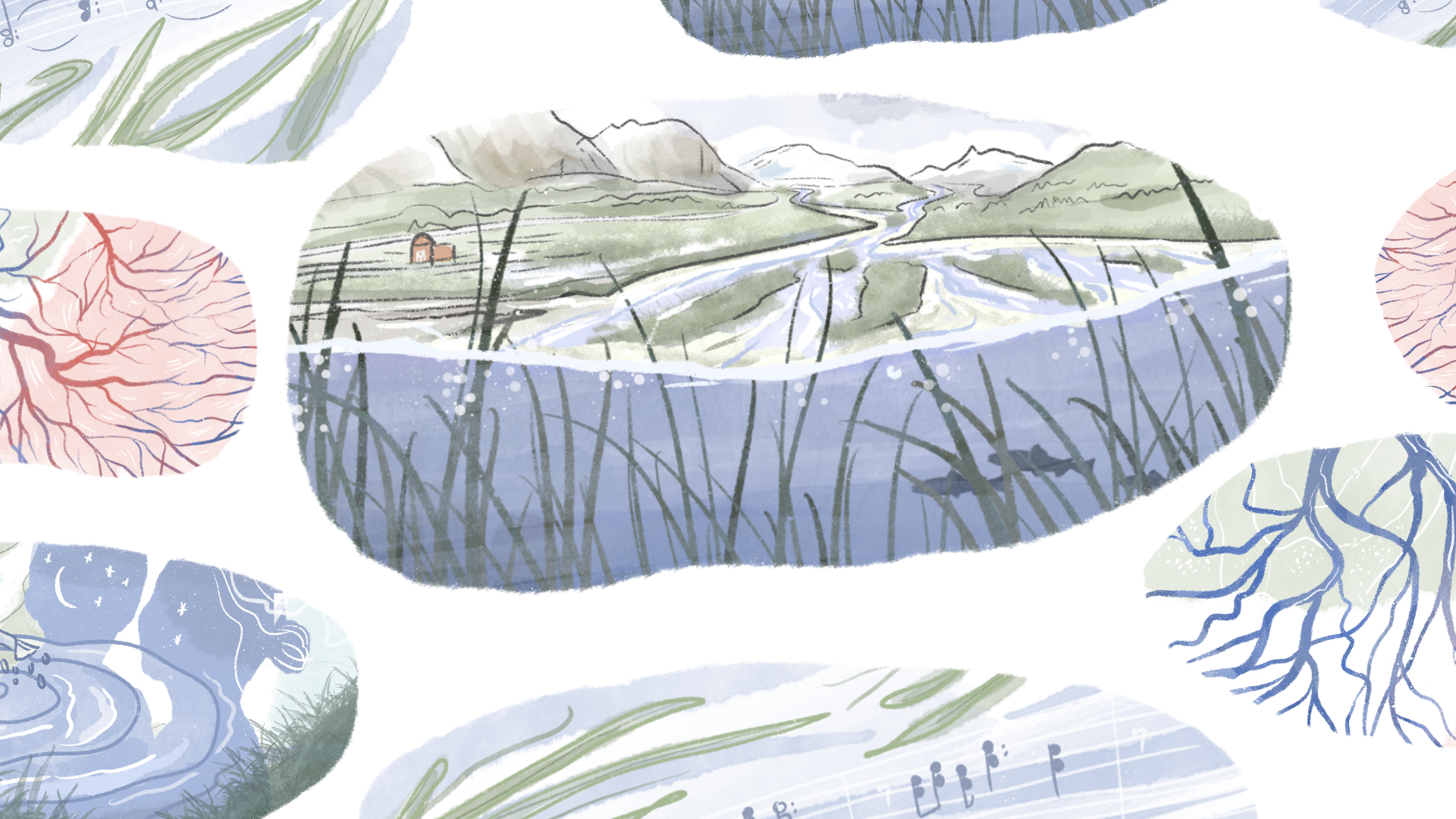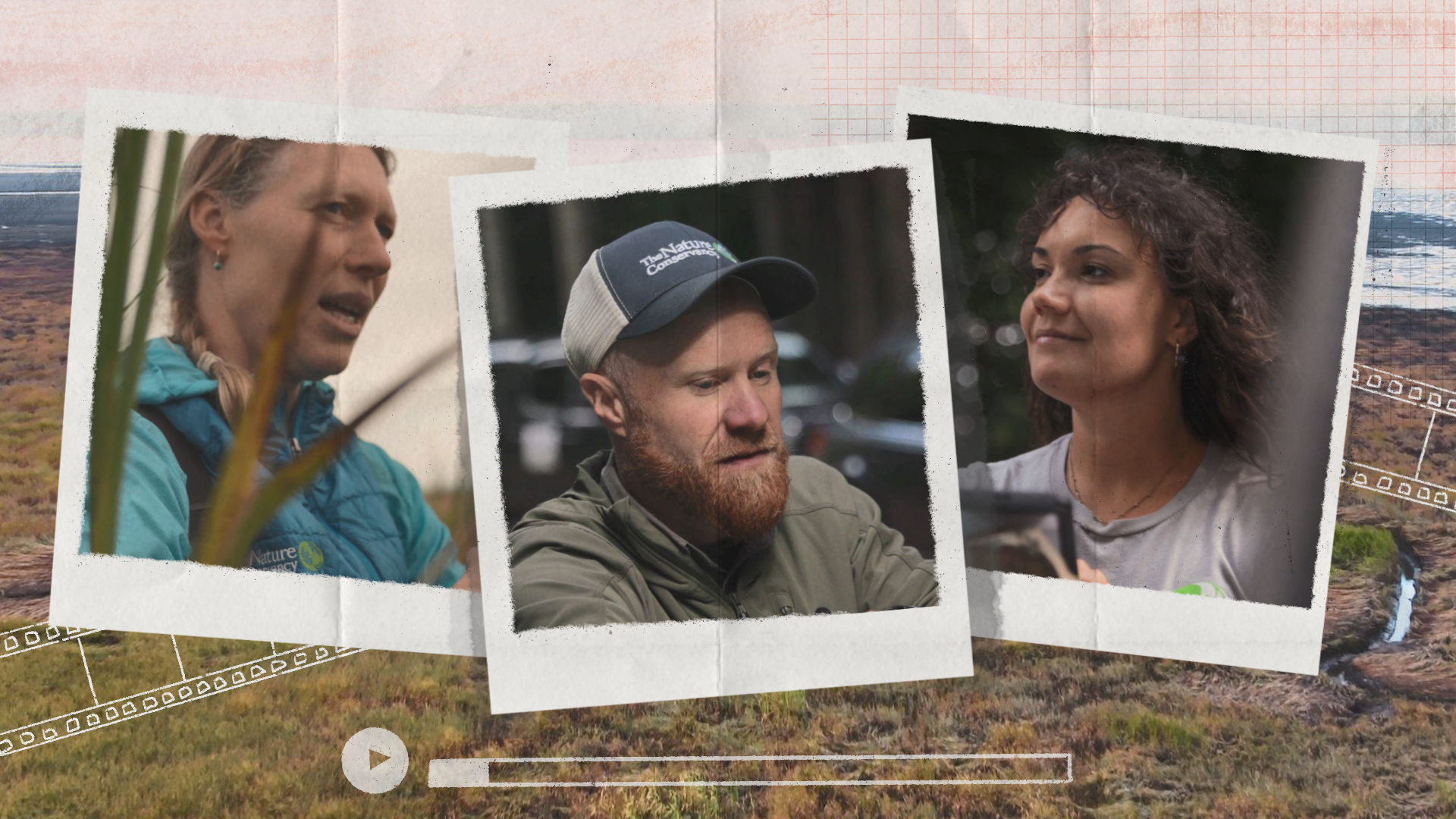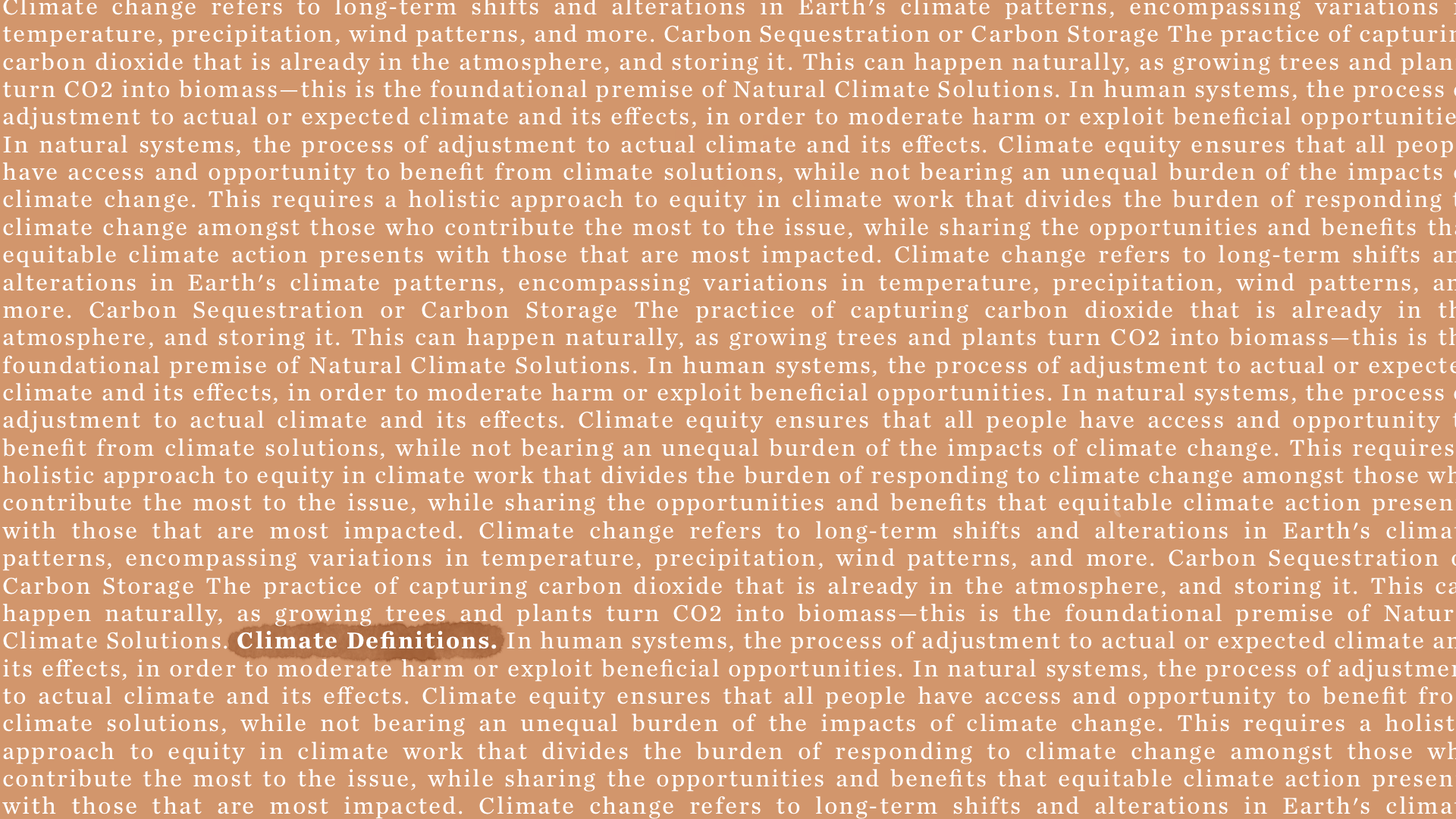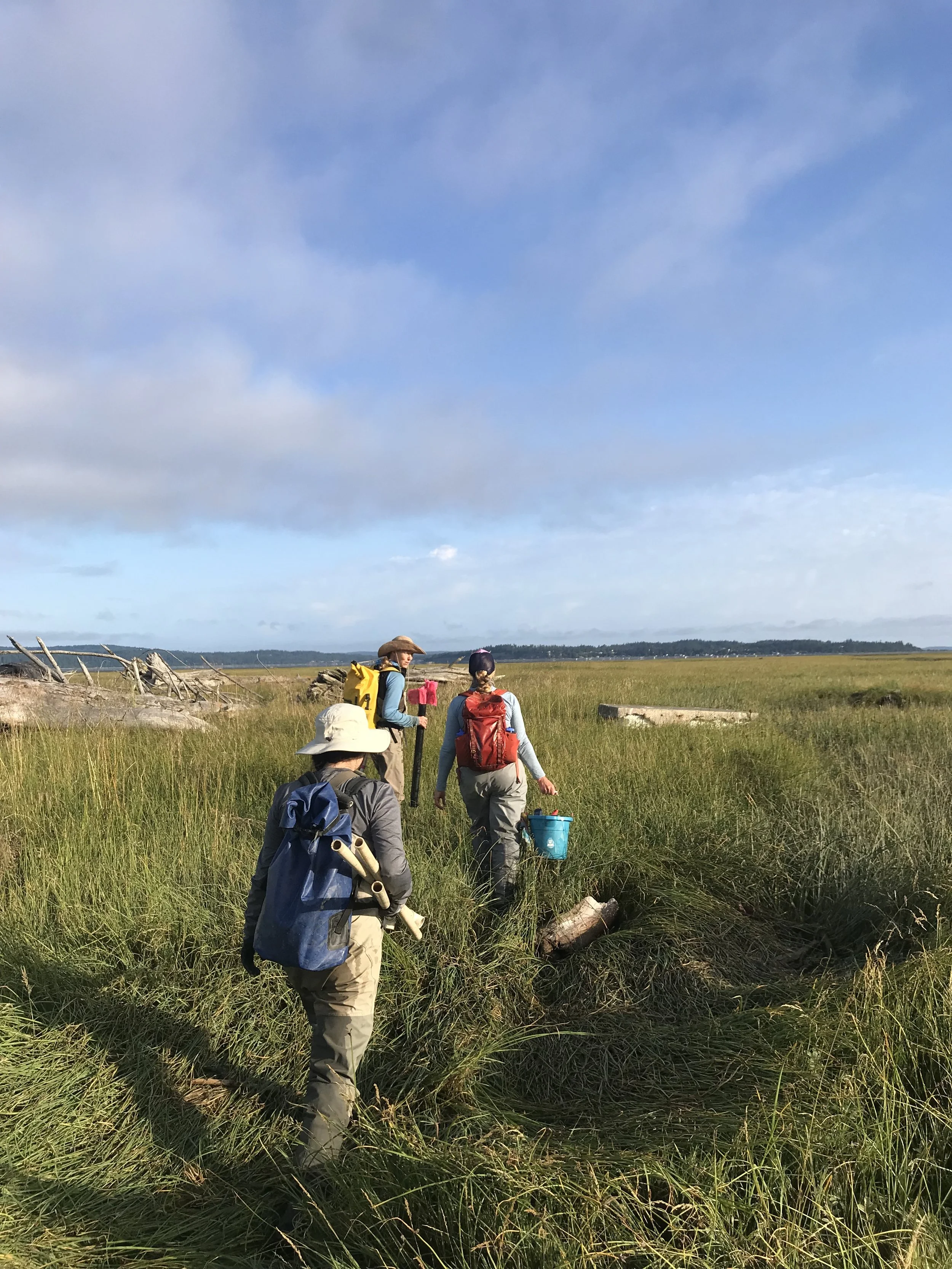by Leah Palmer, TNC Writer/Editor
From scientists to burn bosses, lobbyists to land stewards, DEI practitioners to fundraisers, the women and femmes staff at The Nature Conservancy in Washington contribute some of the leading interventions in conservation, while simultaneously facing unique challenges in a field dominated by men. This Women’s History Month, 2024, we’re exploring the backdrop of our colleagues’ triumphs by turning attention to gender inequity in the conservation field.
© Joel Rogers/TNC
Gender norms often hold women and girls across the globe responsible for stewarding the physical, spiritual and cultural wellbeing for their communities—a dynamic that leaves them at “the forefront of addressing the impacts of climate change and environmental degradation,” a 2019 report states. Despite this, “only 0.2 percent of all foundation funding focuses explicitly on women and the environment” (Global Greengrants Fund, 2019).
Photos: © Mark Stone/University of Washington
Funding exclusion is not the only barrier women in the field navigate. Workplace politics systemically pose a threat to women seeking meaningful seats at decision-making tables. TNC’s director of Gender and Equality for Asia Pacific, Robyn James, completed a survey of more than 900 TNC staff across the globe, showing gender biases strongly influence women in the organization in four major ways: 1) Women feel there are limited opportunities for contributing to conservation and science when compared to men, 2) Women expressed their gender played a key role in restricting their careers, 3) Women experience sexual harassment and discrimination, and when reported, they are at higher risk of retaliation than men, and 4) Women say they experience the field to be less equitable than men perceive it to be.
Photo: © John F Marshall
As such, accomplishments by women in the field almost always hinge on their ability to traverse gender biases. In some cases the systemic barriers they face are so great, they are relegated to roles outside their area of study—such as formally trained scientists supporting conservation through operations roles, fundraising, or marketing. Carolina Chambers, Philanthropy Campaign Administrator at TNC Washington, experienced just this, saying “It was really challenging for me to find a place in [marine biology], doing research, where I initially wanted to be.”
Photo: © G. Tomas Corsini Sr.
Carolina goes on, “Being a Latina is also an added factor. In the U.S., where I went to school, I was the only Latina. It’s harder to find a place, find community, find leadership that you can relate to and be supported.” Despite this, Carolina’s motivation to contribute to conservation never wavered, and she says she’s grateful to work in a philanthropy role that supports a greater mission. For more insight from Carolina, listen to our full recorded interview below.
Hear Her Voice
Photo: © Adam Chambers
Carolina Chambers, Philanthropy Campaign Administrator at TNC Washington shares her experiences as a woman in conservation in a recorded interview.
Her story is one of many at TNC Washington that illustrate the complex terrain women in conservation navigate, but it’s important to note her story is not representative of all. Beyond Women’s History Month 2024, TNC Washington will continue to explore a diversity of voices in our organization, learning how women and femmes experience the intersection of thier identity and work. As Robyn James, Director of Gender and Equity, TNC Asia Pacific guides, “We should make sure our own teams reflect the diversity we seek. That way, we not only lead by example, but we strengthen our own organization with diverse voices, skills and styles of leadership. Equally important, we must make sure we don’t see women as a monolithic group. Women from different cultures and parts of the world have different needs and face different challenges.”
TNC Women Standing in Their Full Power
Organizations that primarily focus on supporting innovations by women and femmes in conservation are often framed as empowering. But, Zinab Salbi, Founder of Daughters for Earth recently offered an important reframing of that idea, saying, “When it comes to protecting the Earth, women do not need to be empowered. They are in their full power." Explore stories across TNC of women who are standing in their power:
Robyn James
© Annette Ruzicka
Robyn explores the root causes of gender discrimination across The Nature Conservancy and the conservation field more broadly. She tells stories of her experiences in the field, while grounding anecdotes with the findings from her study, published in Frontiers in Environmental Science (January 2023). She argues that gender equity in conservation “does more than make conservation fairer; it makes it more effective.”
Sami Schinnell
Photo: Care of Sami Schinnell
Sami is TNC Washington’s Cooperative Fire Director, with over 26 seasons of both fire suppression and prescribed burning under her belt. Today, she leads the charge to implement a balanced relationship with fire by using it to manage TNC preserves. She carries forward Indigenous knowledge instilled in her across her career and is part of a wave of conservationists who are changing shifting our culture’s relationship to fire, moving from repression to reverence.
Dr. Tiara Moore
Photo: © Courtney Baxter/TNC
Before founding Black in Marine Science (BIMS), Tiara worked at The Nature Conservancy in Washington as a Marine Biologist. Throughout her career, Tiara struggled to belong within predominantly white-led organizations, such as TNC and the broader marine science community, largely due to her identities as a as a queer, Black woman. In response to this isolation, Tiara founded BIMS, an organization aimed to celebrate Black marine scientists, spread environmental awareness, and inspire the next generation of scientific thought leaders.
Dr. Emily Howe
Photo: © Kelly Compton
Emily’s body of work poetically reveals that water connects us all. She tends to delicate, transitional habitats, like Port Susan Bay Preserve as Ecologist of Aquatic Environments at TNC Washington. To understand water’s connectivity, her research has taken her from the summits of the Cascades Mountains to understand the source of a watershed, to the streets of our urban and residential areas to observe how water flows to the Puget Sound. Along her journey as a scientist and mother, Emily has surfaced rich metaphor and universal truths.
Credits:
Header Photo: © Joel Rogers/TNC
Audio Engineer, and Producer: Leah Palmer
Guest: Carolina Chambers, TNC Philanthropy Campaign Administrator
Music:
"Wholesome" Kevin MacLeod (incompetech.com), Licensed under Creative Commons: By Attribution 4.0 License, http://creativecommons.org/licenses/by/4.0/
“Forgotten Waves (Loop 1)” AndromedaX8 , Liscensed under Pond5,
"Loopster" Kevin MacLeod (incompetech.com), Licensed under Creative Commons: By Attribution 4.0 License, http://creativecommons.org/licenses/by/4.0/


































